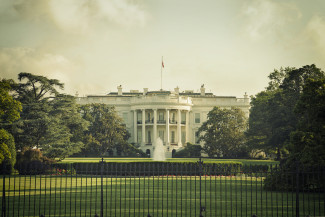
Johns Hopkins UniversityEst. 1876
America’s First Research University
The Best Laid Plans: A Discussion of American Grand Strategy with Ionut Popescu

Henry Kissinger once wrote, “In retrospect all successful policies seem preordained. Leaders like to claim prescience for what has worked, ascribing to planning what usually starts as a series of improvisations.” And yet, discussions of American Grand Strategy, both in Washington and in academia, often take for granted that following a long-term design is a key to success. Policymakers are usually criticized when they take seemingly incremental actions based on short-term considerations. But could such actions actually converge into a successful emergent strategy over time? Such a view is prevalent in the business world, where the idea of a successful Emergent Strategy is not as uncommon as it is in the field of security studies. When one examines key policies and strategies adopted by US presidents over the past seventy years, as I do in this book, the relation between following a coherent long-term grand strategy and achieving success in foreign policy is much more tenuous than commonly assumed.
There is a narrative inside Washington that credits American diplomat George Kennan with designing a Containment grand strategy that successfully guided America to victory in the Cold War, but this view is grounded more on myth than historical evidence. While Kennan’s ideas contributed in some ways to the formation of American strategy in the 1940s, many of the most successful elements of President Harry S. Truman’s Containment framework, such as NATO and the Truman Doctrine, came out of an emergent process and were in fact at odds with Kennan’s designs. Similarly, another president credited with achieving significant grand strategic success, Ronald Reagan, relied at least as much on improvisation and adaptation as he did on the implementation of farsighted strategic plans. Not only was the Grand Strategy paradigm not as important as commonly thought in terms of bringing about successful outcomes, but following a long-term grand strategy has at times led to some errors of statecraft that otherwise might have been avoided, such as the wars in Vietnam and Iraq.
Therefore, this book should hopefully challenge international relations scholars and DC-based think tank analysts to rethink the ideal path to successful results in foreign policy. Rather than believing that successes come primarily from following a long-term strategic plan, experts must also allow for the possibility of emergent learning and improvisation leading to strategic accomplishments in the absence of a grand design.
What are the implications of these findings for the conduct of US foreign policy and strategy? The most important conclusion to be drawn from the case studies is that, unlike what many Grand Strategy experts contend, senior policymakers should be skeptical of the idea that formulating and implementing a long-term national security strategy is the road to a successful foreign policy legacy. Instead, they should prioritize learning from the almost unavoidable mistakes they will make early in their tenures, and also focus on determining how their initial goals and strategic vision must be adapted in light of the inevitable surprises and the unexpected challenges and opportunities they will be facing while in office.
In the early stages of the Trump administration, the discussion of grand strategy and emergent strategy presented in this book is more relevant than ever. Donald Trump brought to office a peculiar management style similar in many ways to the Emergent Strategy paradigm developed in the business literature. His penchant for short-term improvisation and his skepticism of formal planning processes both indicate that this administration’s foreign policy decision-making could provide a good example of both the potential risks and benefits of relying on emergent strategy. It is crucial to keep in mind, however, that the key to the successful formation of emergent strategies is the ability to learn and adapt. Therefore, more so than his long-term grand strategy or lack thereof, President Trump’s actual legacy will depend on this administration’s ability to develop a successful emergent strategy to tackle the present and future national security challenges facing the United States.
Ionut Popescu is an assistant professor of political science at Texas State University. Professor Popescu is also the author of Emergent Strategy and Grand Strategy: How American Presidents Succeed in Foreign Policy


